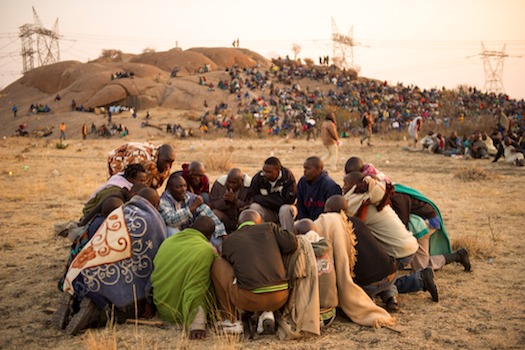- About
- Topics
- Picks
- Audio
- Story
- In-Depth
- Opinion
- News
- Donate
- Signup for our newsletterOur Editors' Best Picks.Send
Read, Debate: Engage.
| October 23, 2018 | |
|---|---|
| topic: | Health and Sanitation |
| tags: | #Fidel Castro, #Nelson Mandela, #South Africa |
| located: | South Africa |
| by: | Shasha Seakamela |
Diplomatic relations between South Africa and Cuba have resulted in the establishment of the medical collaboration programme aiming to promote primary healthcare. This began in 1994.
The training of students by Cuba began as a result of a bilateral agreement between former South African President Nelson Mandela and former Cuban President Fidel Castro. This programme began in 1996 and for over a decade saw fewer than 100 students depart each year. It was expanded in 2012 when 1‚000 students were sent to study in Cuba. At that stage SA’s eight medical schools were graduating about 1‚200 doctors a year and only about 300 Cuban-trained doctors had completed their studies.
“This is the first group to return since 2012, more students expected in the coming weeks. What’s special about this group is that they come home at a time when the country celebrates former President Nelson Mandela’s centenary,” said South Africa’s health minister Dr. Aaron Motswoaledi.
Fidel Castro and Nelson Mandela developed such a close relationship that it’s impossible to forget it when speaking about the African leader in Latin America. The triumph of the Cuban Revolution in 1959 inspired a young Mandela. Later in life, Mandela credited Cuba’s military support to Angola in the 1970s and 1980s with playing a role in debilitating South Africa’s government enough to result in the legalisation of his party, the African National Congress, in 1990. Cuba’s solidarity with the African continent never waned, and for decades Castro and later his brother Raul sent Cuban doctors to assist in primary healthcare in the most far-flung rural areas in Africa.
South Africa sent medical students to Cuba in the first instance because the country is simply not producing enough doctors. At that time in 1996, the Department of Health looked at the number of doctors produced by universities and realised that producing fewer than 2,000 doctors per year was not matching the rapid population growth and these numbers could never reach a ratio of two doctors per 1,000 population. The department, therefore, increased the number of doctors by sending many more students than in previous years to study in Cuba from 2012, as per the Nelson Mandela-Fidel Castro Medical Collaboration.
Cuba’s ambassador to South Africa Rodolfo Bentez Verson stressed the true values of the bilateral medical programme between the two countries.
“The cooperation between our two countries is for the benefit of our peoples. It is not for the enrichment of individuals or transnational corporations. It does not seek the prosperity of the few or to obtain economic advantages for our countries. It is a model of South-South cooperation based on genuine solidarity, ” said Cuba’s ambassador to South Africa Rodolfo Bentez Verson.
By copying the embed code below, you agree to adhere to our republishing guidelines.
